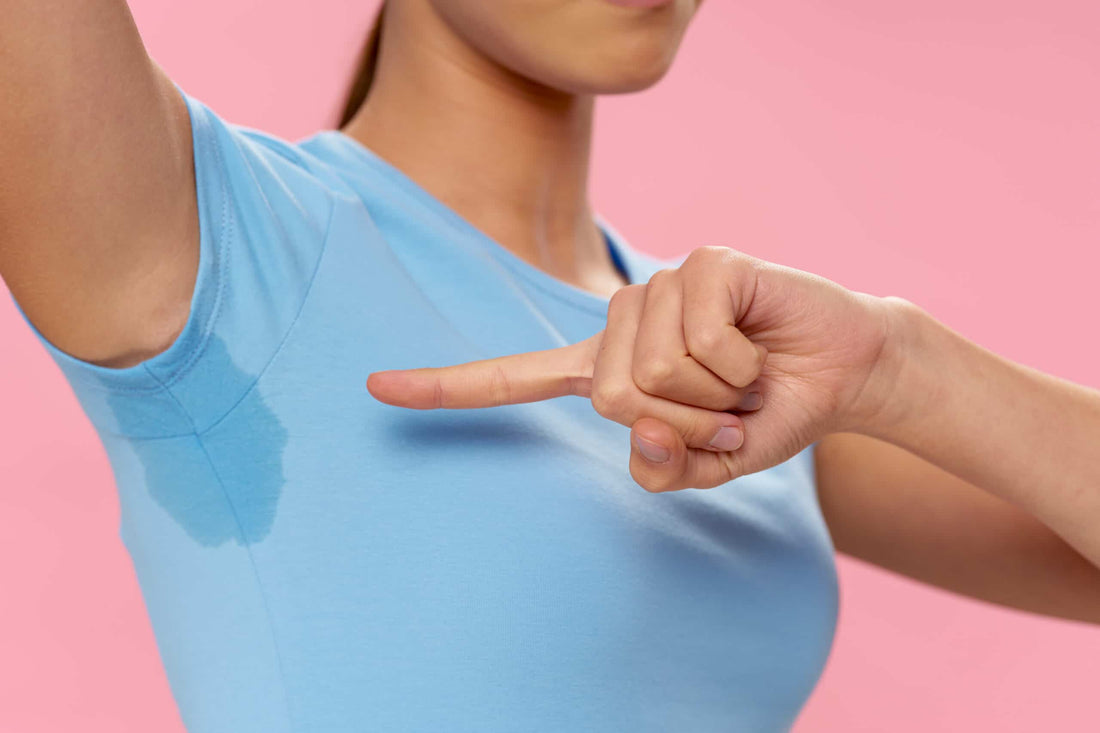
Navigating Hyperhidrosis: Understanding the Struggles Faced by Teens and Young Adults
Sweating is a natural bodily function that helps regulate body temperature, but for some individuals, it becomes an overwhelming challenge that impacts their daily lives. Hyperhidrosis, a medical condition characterised by excessive sweating, can be particularly distressing for teenagers and young adults. In this blog post, we will explore the impact of hyperhidrosis on this specific age group, shedding light on the challenges they face and offering support. It is crucial to raise awareness about this condition to foster empathy and understanding within our communities.
The Physical and Emotional Burden:
Hyperhidrosis can be a relentless struggle, with teens and young adults facing discomfort and embarrassment amongst peers. The excessive sweating experienced by those with hyperhidrosis often affects multiple areas of the body, such as the hands, feet, underarms, and face. This condition can lead to constant dampness, discomfort, and potential skin irritations. The physical symptoms are not limited to the inconvenience of sweat stains; they can also impact an individual's self-esteem, confidence, and overall mental well-being.
Social and Psychological Impact:
Hyperhidrosis can significantly affect the social lives of teenagers and young adults. Adolescence is a critical time for forming personal relationships and establishing one's identity, and excessive sweating can undermine self-assurance during these crucial years. Affected individuals may avoid social situations, such as parties or dates, for fear of embarrassment or judgment. The fear of being "found out" or ridiculed can lead to anxiety, depression, and social isolation.
Moreover, hyperhidrosis can influence academic performance and career choices. A student who constantly worries about sweat-soaked papers or staining classroom chairs may struggle to concentrate, affecting their learning experience. In professional settings, young adults with hyperhidrosis may face difficulties in job interviews, workplace interactions, or networking events, hindering their ability to thrive and progress.
Support and Coping Strategies:
- Seek Medical Help: It is essential for teenagers and young adults with hyperhidrosis to consult healthcare professionals who can diagnose and provide appropriate treatment options. Several treatment modalities are available, including DRITAL Perspiration Controlling Powder, prescription antiperspirants, iontophoresis, medications, and, in severe cases, surgical interventions like Botox injections or sympathectomy.
- Emotional Support: Encouraging open communication and providing emotional support is crucial for those navigating hyperhidrosis. Parents, friends, and healthcare professionals should create a safe environment for individuals to express their concerns, fears, and frustrations. Support groups, both online and offline, can also offer a sense of belonging and a platform to share experiences with others facing similar challenges.
- Lifestyle Modifications: While hyperhidrosis can be overwhelming, there are lifestyle modifications that can help manage the condition. Wearing loose, breathable clothing, using absorbent materials or pads, and keeping cool, well-ventilated environments can help minimise discomfort. Stress management techniques such as mindfulness, meditation, or engaging in activities that promote relaxation can also be beneficial.
Hyperhidrosis can have a profound impact on the lives of teens, affecting their physical comfort, emotional well-being, and social interactions. By understanding the challenges they face, we can create a supportive environment that fosters empathy and acceptance. Remember, seeking medical help, providing emotional support, and exploring coping strategies are essential steps towards enabling individuals with hyperhidrosis to lead fulfilling lives.
References:
International hyperhidrosis society. (2021). Hyperhidrosis in teens and young adults. Retrieved from https://www.sweathelp.org/hyperhidrosis-teens-young-adults
Yilmaz, a. E., Yucelten, a. D., & Koc, m. (2017). Hyperhidrosis and its impacts on quality of life. Journal of clinical and Experimental investigations, 8(3), 80-84. Doi: 10.5799/jcei.333915
